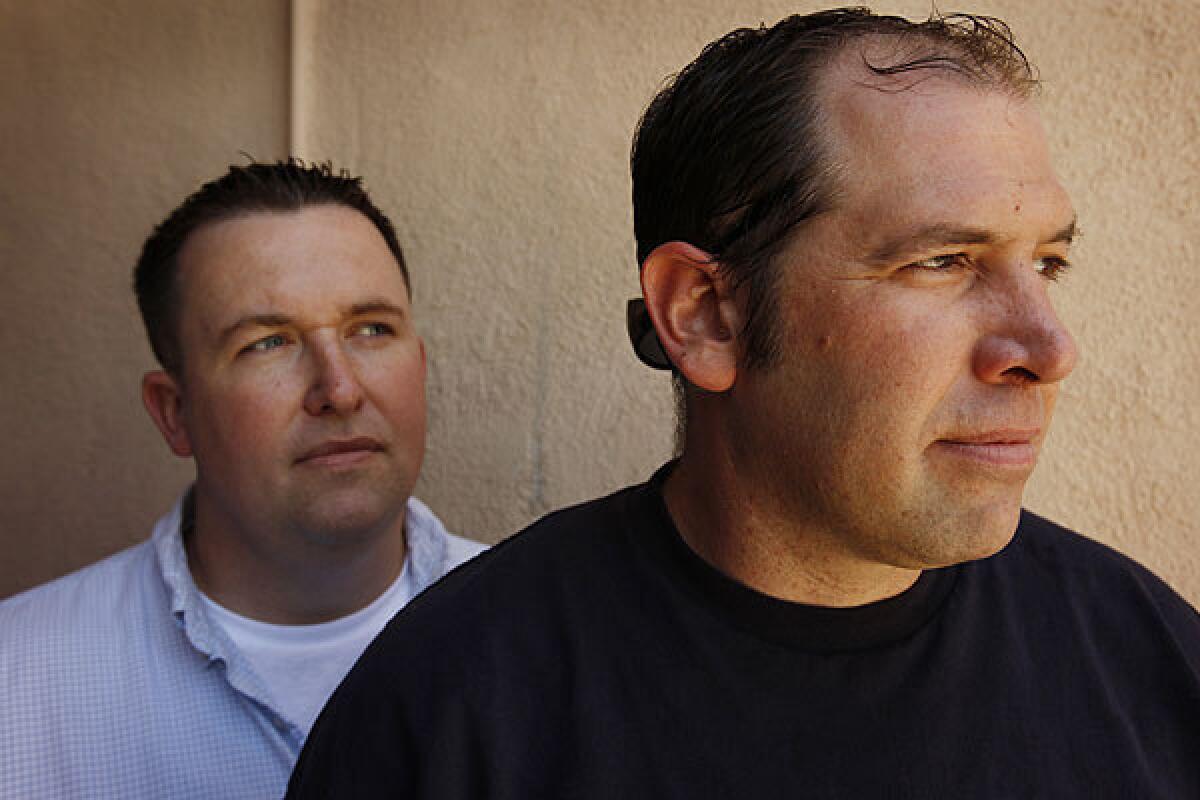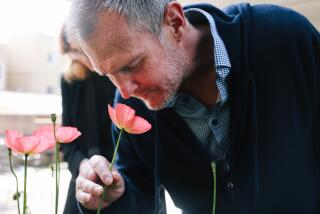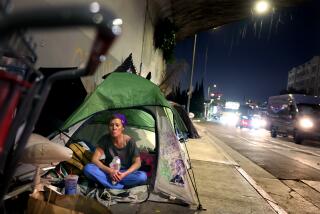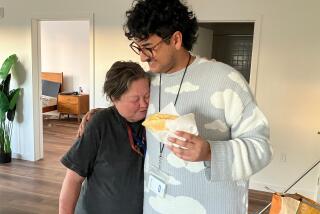Veterans still struggling to get their bearings

My plan was to check in on Greg Valentini, who fought for the U.S. Army in both Iraq and Afghanistan. But I couldn’t get into his locked apartment building Monday afternoon in Hollywood. He hadn’t answered my phone calls or emails, and it was too hot to wait on the street.
Just as I was about to give up on him, a young man approached on foot, stood under Valentini’s window and gave a yell.
“Greg!” called the man, whose name is Jacob Alatriste.
“You think he’s in there?” I asked.
“Yes,” said Alatriste, who was carrying a baseball jersey he’d picked up from the dry cleaners as a favor for his friend. “I was in there with him earlier. But he’s got the air conditioner on, and he probably can’t hear anything.”
Alatriste knew that I’d written several columns about Valentini, who crashed hard after leaving the military and ended up living in a tent next to Long Beach Airport. When Valentini got caught stealing to feed a drug habit, he landed in a residential recovery program called the Hollywood Center, run by Volunteers of America for veterans of the wars in Iraq and Afghanistan.
Alatriste, himself a veteran of the Iraq war, had gone through the same program. Now, like Valentini, he’s still trying to get his bearings.
But it hasn’t been easy. Alatriste, 28, told me how he’d just tangled with some tough guys at a nearby sober-living house and gotten himself kicked out.
“So where are you going to live?” I asked.
“I guess I’m going to be homeless for a while,” said Alatriste, who told me he has a job but hasn’t saved enough to get a place.
As we talked, two more of Valentini’s friends approached. Robert Rissman, 24, who fought in Iraq, is currently in the Hollywood Center program. He was with his pregnant fiancee, Marilyn Flores, 19, and I realized that even if Valentini never opened the door, I was still getting a look at the challenges of returning to civilian life after deployment.
Rissman was in a jam, partly of his own making and partly because bureaucracy can easily get in the way of good intentions. He had completed the program and gotten a coveted housing voucher, but it lapsed before he could save up enough money to meet his part of the rent. He went back to the Hollywood Center, but his next application for a voucher was rejected, so now he’s contemplating his next move.
“I’m just a veteran’s fiancee,” Flores said.
I asked where she was living.
“In my car,” she said, pointing up the street to a 1999 Isuzu, and explaining how she curls up in the back of the vehicle at night, despite being more than six months pregnant. “Sometimes I couch surf.”
Rissman wants to finish school and get a good job, he said, but at the moment all he’s got is a 50% disability check for service-related post-traumatic stress disorder.
Flores would like to find a decent studio apartment near MacArthur Park, which she thinks they could get for $700 a month, but Rissman said he doubted that.
“Because you’re depressed,” she said.
“No, because I’ve been disappointed many times,” he answered.
As we spoke, I noted that the U.S. flag was flying from the porch of a sweet little cottage across the street, perhaps in early celebration of the Fourth of July.
“I want a house like that one day,” Flores said.
“We’ll see,” said Rissman, who told me he’s been homeless several times since leaving the service.
“It’s 2 1/2 months ‘til she has this kid,” Rissman said.
“This kid,” Flores responded, a bit peeved at the way his words sounded.
When I asked Rissman what the plan was, long-range, he said he doesn’t have the luxury of looking down the road.
“I’m thinking about where she’s going to sleep tonight and where we’ll be in two weeks,” he said, adding that he’s worried he’ll “have nowhere to raise my daughter when she’s here.”
As scary as that may be, Rissman said his experience in Iraq puts things in perspective.
“I know some people who didn’t make it home,” he said.
On Tuesday I stopped by the Hollywood Center to see social worker Jim Zenner. He told me Rissman was a bright young man who’s going to make it if he stays focused, and Zenner also had a lead for Rissman on an affordable housing option.
Since I was never able to reach Valentini, I also asked about him. Zenner said he doesn’t drop by as much as he used to, and it’s not clear whether he’s making much progress on his one-time goal of following in Zenner’s footsteps and trying to rescue vets as a social worker.
“The two things I see” knocking recovering vets off track, Zenner said, “are drugs and isolation.” He’s hoping Valentini will win the battle with both.
Zenner, a vet, knows first-hand the tenacity of demons that haunt former service men and women in the United States, where 22 veterans daily, on average, take their own lives. Organizations such as Volunteers of America offer hope, but Zenner still refers anyone in need of immediate counseling to an organization that helped him and his family when he was struggling.
The Soldiers Project, a national network of volunteer therapists, confidentially treats veterans and their loved ones for free, for as long as it takes, with no red tape, says founder Judith Broder. For more information, call (818) 761-7438 or go to https://www.thesoldiersproject.org.
Although I didn’t catch up with Valentini this time, I spoke to his father, Carl, who said Greg would celebrate the Fourth on Thursday with a barbecue at the family home in Lakewood.
Happy Fourth, Greg, and give me a call sometime.
More to Read
Start your day right
Sign up for Essential California for news, features and recommendations from the L.A. Times and beyond in your inbox six days a week.
You may occasionally receive promotional content from the Los Angeles Times.






